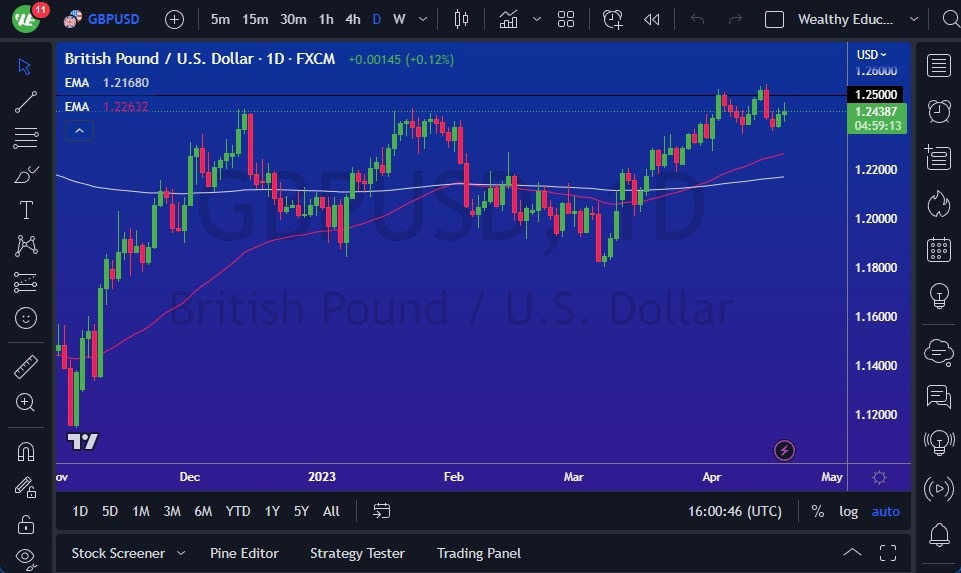[ad_1]
In the long term, many investors believe that the British pound is a “buy on the dip” type of situation, meaning that they are more likely to buy the currency when its value dips.
- The GBP/USD showed a lot of volatility during Wednesday’s trading session, as it oscillated back and forth without showing any clear direction.
- According to market experts, the 1.25 level continues to act as a significant barrier for the pound to overcome.
- If it manages to surpass this level, it is likely that the currency pair will continue to rise.
On the downside, if the pound were to break down below the 1.23 level, it could lead to a more significant selloff, potentially making the US dollar one of the strongest currencies in the world. The 50-day EMA near the 1.23 level is also an important level that many traders will be watching closely. If the pound falls below this level, the 200-day EMA near the 1.22 level could come into play.
Despite the noise and volatility in the market, experts believe that the market is currently favoring the upside in the short term. However, the 1.25 level is a crucial resistance level, and if the pound manages to break above it, the pair is likely to continue to rise significantly. The market is expected to continue to be volatile in the short term, but if it breaks out to the upside, the effect could be like a beach ball that has been held underwater finally springing to the surface.
In the long term, many investors believe that the British pound is a “buy on the dip” type of situation, meaning that they are more likely to buy the currency when its value dips. However, if the currency were to give back its gains and drop below the moving averages, anything could happen. Keep in mind that the markets are jittery at best, and therefore anything is possible in this environment.
TLDR; the British pound is currently experiencing a lot of noise and volatility, making it challenging to predict its direction. The 1.25 level remains a crucial resistance level, and if the pound manages to break above it, the currency pair is likely to continue to rise. However, if it falls below the 1.23 level, a significant selloff could occur. In the long term, the British pound is considered a “buy on the dip” type of currency, but traders should keep a close eye on the news and events that could affect its value.

Ready to trade our Forex daily forecast? We’ve shortlisted the best Forex brokers in the industry for you.
[ad_2]
